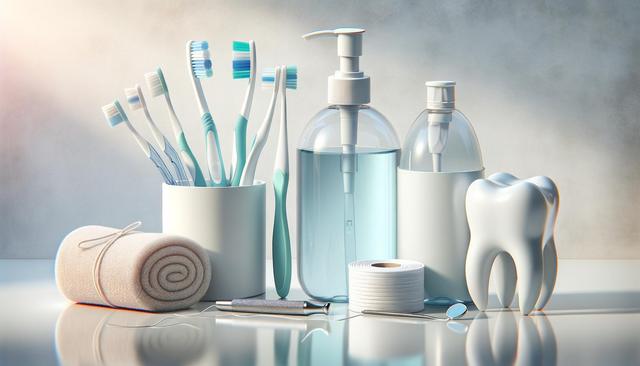Understanding the Role of Dental Hygienists
Dental hygienists are essential professionals in oral healthcare, providing preventive services that help maintain dental health and support the work of dentists. Their responsibilities go beyond cleaning teeth and include patient education, early detection of oral health issues, and assisting in complex procedures. With a shift toward preventive care in dentistry, the demand for skilled dental hygienists continues to grow across many communities. People searching for a “Dentist Near Me” are increasingly aware of the importance of the dental hygienist in their overall care experience, often interacting with them more frequently than with dentists themselves.
These professionals are trained to perform a range of services, including:
- Conducting oral health assessments
- Removing plaque and tartar
- Applying fluoride treatments and sealants
- Educating patients about proper oral hygiene
- Taking and developing dental X-rays
As the scope of their practice expands in many regions, dental hygienists are playing a more integral role in patient care strategies, making their presence in clinics even more valuable.
Why More Students Are Exploring Dental Hygiene Programs
In recent years, there’s been a noticeable increase in interest surrounding dental hygiene programs. Several factors contribute to this trend. First, the healthcare industry’s stability and growth make dental hygiene an attractive career path for those seeking long-term employment opportunities. Additionally, the relatively short duration of most dental hygiene programs—typically two to three years—allows individuals to enter the workforce sooner compared to other healthcare professions.
Another appealing aspect is the potential for flexible work schedules. Dental hygienists often have the opportunity to work part-time or in multiple locations, which is ideal for those balancing work with other responsibilities. With many people searching online to “Find Dentist Near Me,” there’s an increasing need for qualified hygienists to support expanding dental practices. This rising demand means that many educational institutions are expanding their offerings or creating new programs to accommodate the influx of interested students.
Moreover, the career offers a sense of purpose and the opportunity to make a meaningful impact on individuals’ health. For many students, the ability to promote wellness and prevent disease through patient interaction is a strong motivator to choose this path.
Work Environment and Career Outlook
Dental hygienists typically work in private dental offices, community clinics, and sometimes in educational or public health settings. The work environment is often clean, well-lit, and equipped with modern dental technology. Hygienists usually work under the supervision of a licensed dentist but remain autonomous in their specific roles.
The U.S. Bureau of Labor Statistics projects continued growth in dental hygiene employment, driven by an aging population and increased awareness of oral health. As dental practices grow to meet the demand from patients searching for services like “Teeth Dental Implants,” they require trained staff to handle routine care, allowing dentists to focus on more complex procedures. This division of labor helps clinics operate more efficiently and serve more patients daily.
Some benefits of a dental hygienist career include:
- Competitive salaries
- Job stability and security
- Opportunities for advancement with additional certifications
- A positive work-life balance
These factors make it an appealing choice for those entering the healthcare field without committing to a decade-long educational path.
Skills and Qualities of Successful Dental Hygienists
Becoming a successful dental hygienist requires more than technical knowledge. Interpersonal skills, attention to detail, and a commitment to patient care are crucial traits that can set one apart. Since hygienists often spend more time with patients than dentists, their ability to communicate effectively and build trust is essential.
Important soft and hard skills include:
- Effective communication and active listening
- Manual dexterity and hand-eye coordination
- Knowledge of dental software and diagnostic tools
- Empathy and patience when working with anxious patients
- Ability to educate and motivate patients toward healthier habits
These skills help create a comfortable environment for patients, contributing to better health outcomes and higher satisfaction levels. As more people search for a “Dentist Near Me,” having a compassionate and skilled hygienist on staff can enhance the patient experience and lead to long-term relationships with the clinic.
Steps to Becoming a Dental Hygienist
For those considering a career in dental hygiene, the process involves a combination of formal education, licensure, and ongoing professional development. Most dental hygiene programs are offered at community colleges or technical schools, culminating in an associate degree. Some universities also offer bachelor’s and even master’s programs for those interested in advanced roles in education or administration.
Key steps include:
- Completing prerequisite courses in biology, chemistry, and anatomy
- Enrolling in a Commission on Dental Accreditation (CODA)-approved program
- Passing the National Board Dental Hygiene Examination
- Obtaining state licensure, which may include additional clinical exams
After entering the field, dental hygienists are encouraged to stay updated through continuing education. This ensures they remain knowledgeable about new technology, procedures, and health guidelines. As dental practices evolve to meet the needs of patients requesting treatments like “Teeth Dental Implants,” staying current helps hygienists remain valuable team members in a rapidly changing environment.
Conclusion: A Promising Path in Healthcare
Dental hygiene is emerging as a rewarding and stable career choice, offering a blend of clinical work, patient interaction, and educational opportunities. With the growing emphasis on preventive care and the increasing number of people looking to “Find Dentist Near Me,” the role of dental hygienists is more critical than ever. Whether working alongside dentists or educating patients on the importance of oral health, hygienists play a key role in shaping healthier communities. For those drawn to healthcare but seeking a practical and impactful career path, dental hygiene programs provide a solid foundation for long-term success and personal fulfillment.




Leave a Reply